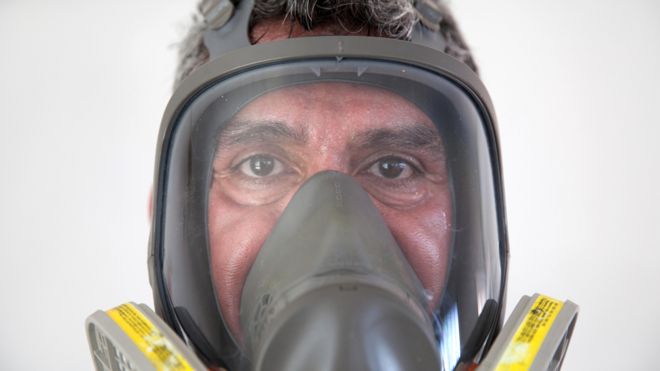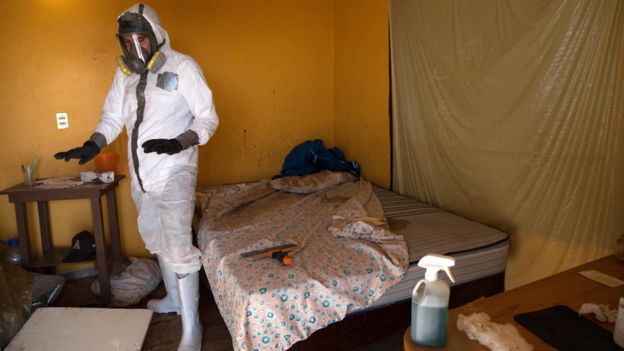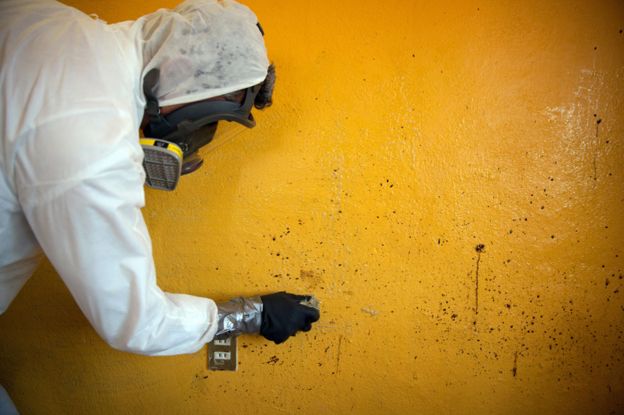
What happens to the blood after a murder? The question haunted me for years, until I answered it myself.
The first time I saw a dead body was when I was 12 years old. Early one morning we heard that somebody had died on the street outside our block of flats. We went out to look. There were clear signs of violence. The man didn't have a shirt. I was struck by the streams of blood going down the street. But I didn't feel scared - I was just very curious. And that's how my fascination with blood began.
As well as us bystanders there were police officers and investigators. I kept waiting for someone to come and clean up the blood, but no-one came. Some of the blood even ran towards our building and my mother washed it away with water.
I asked her: "Who cleans the blood after a murder?" I asked her so many questions that day.
When my father came home from work I asked him too: "What happens to the blood after a murder? How do you clean it up?" I kept asking about it for days, until he said, "Please stop talking about this. Enough!"
That was when I decided to find out for myself. I went to the library and took out a book on medicine, but that was too general. Then I found a book about forensic medicine. I read about the process of death and what happens to a corpse. I learned a lot.
A murder isn't the same as an accident - in a murder there is a lot of blood. And blood can carry diseases. It seemed to me that if someone takes bodies from the street, there should also be a professional who cleans up the blood.

And that's how I became a forensic cleaner.
Over the years I have invented more than 300 different formulas to clean up blood. Some I have perfected over the years. Others haven't changed since I first used them.
You need different methods depending on what you are cleaning - whether it's the carpet of a car, for instance, or personal objects like watches or rings. It also depends on how and when the person died. For instance, someone may have been lying dead in the bathroom of their house for a week, in a humid environment. In another situation, perhaps where a man has hung himself with his own tie, you need to consider other bodily fluids such as semen or faeces.
Before I come I ask what happened, and where the corpse is. I also need to know if the dead person was ill, and if there is a chance of contamination. That way I can plan ahead.


No comments:
Post a Comment